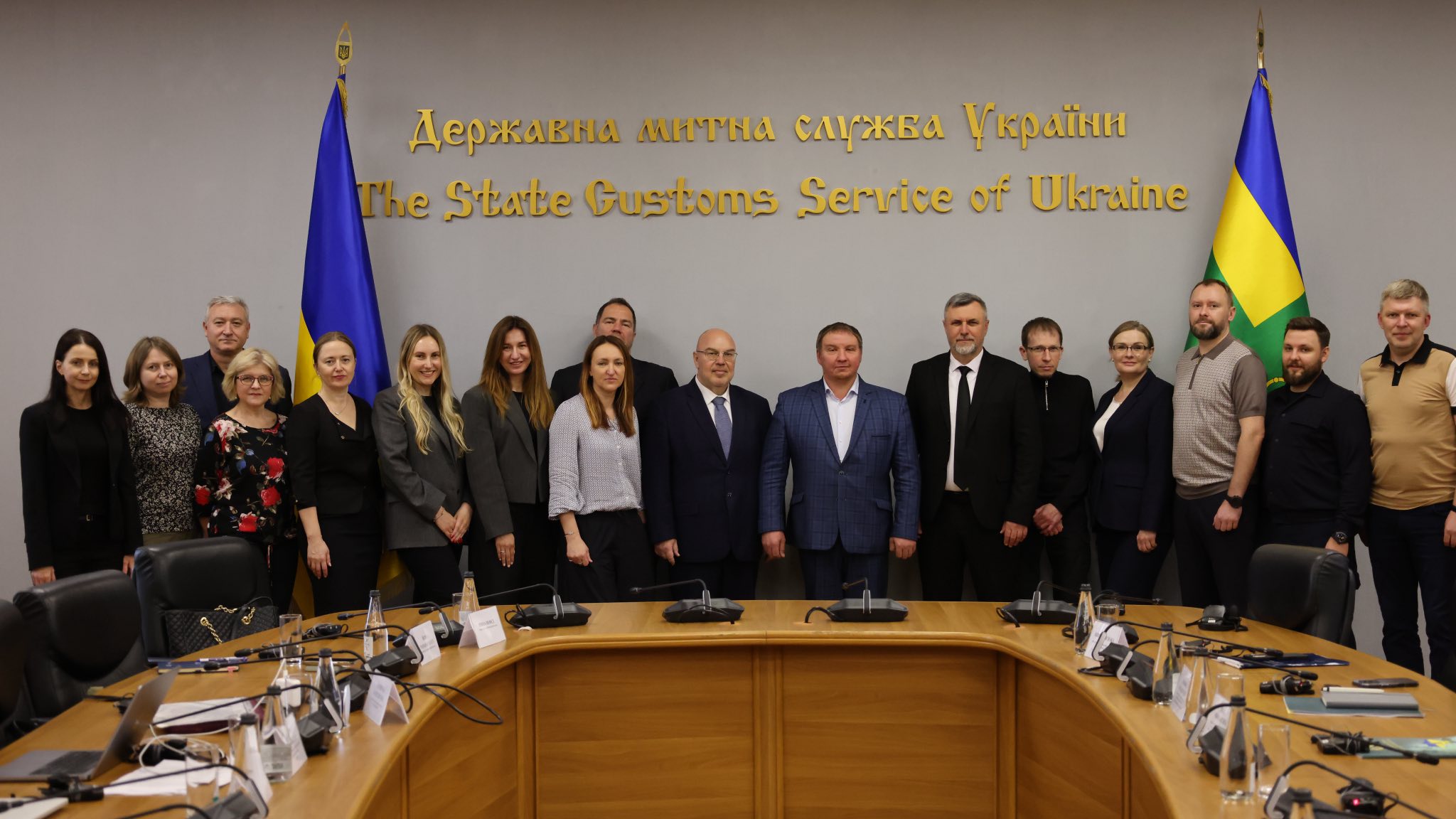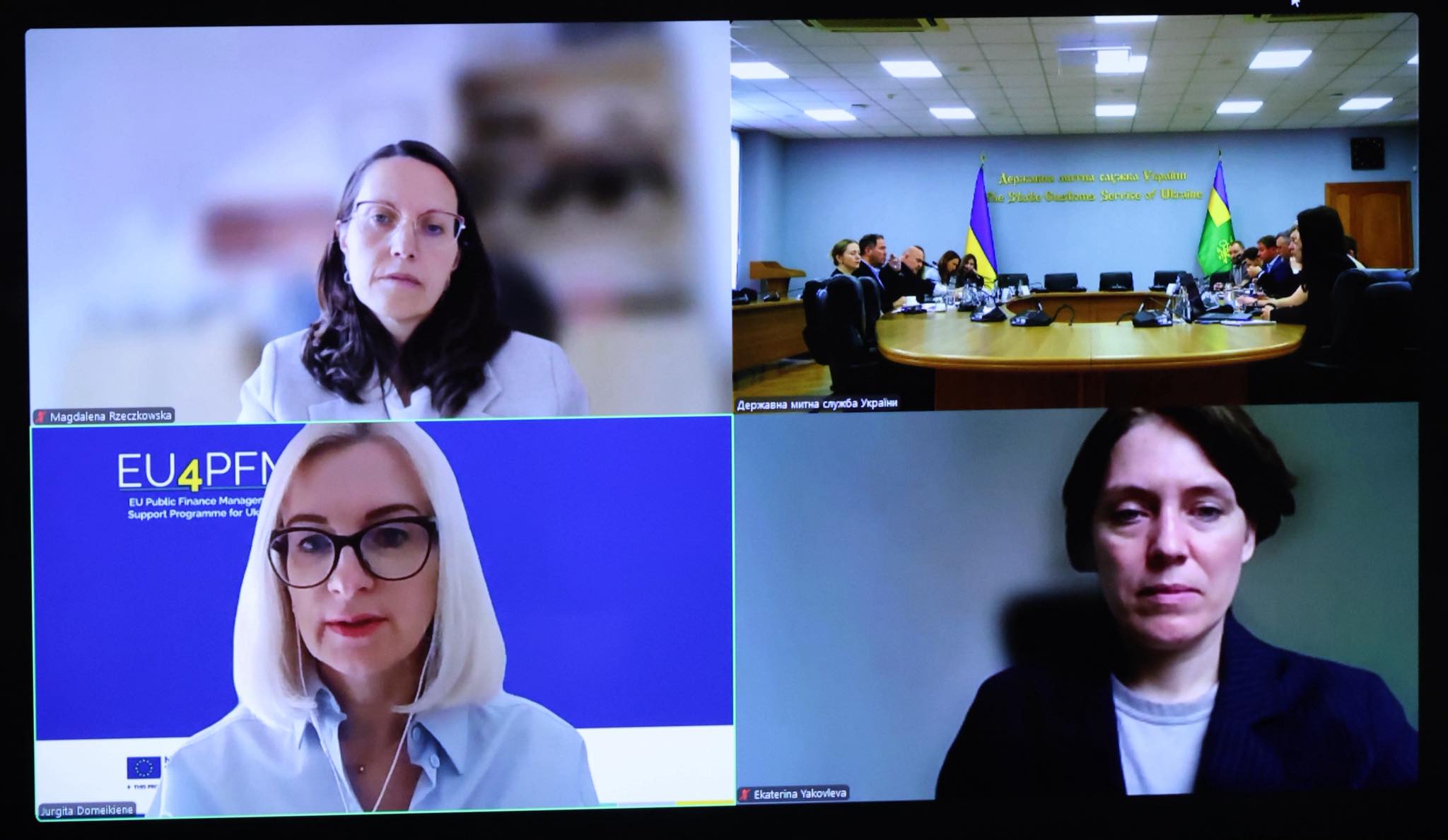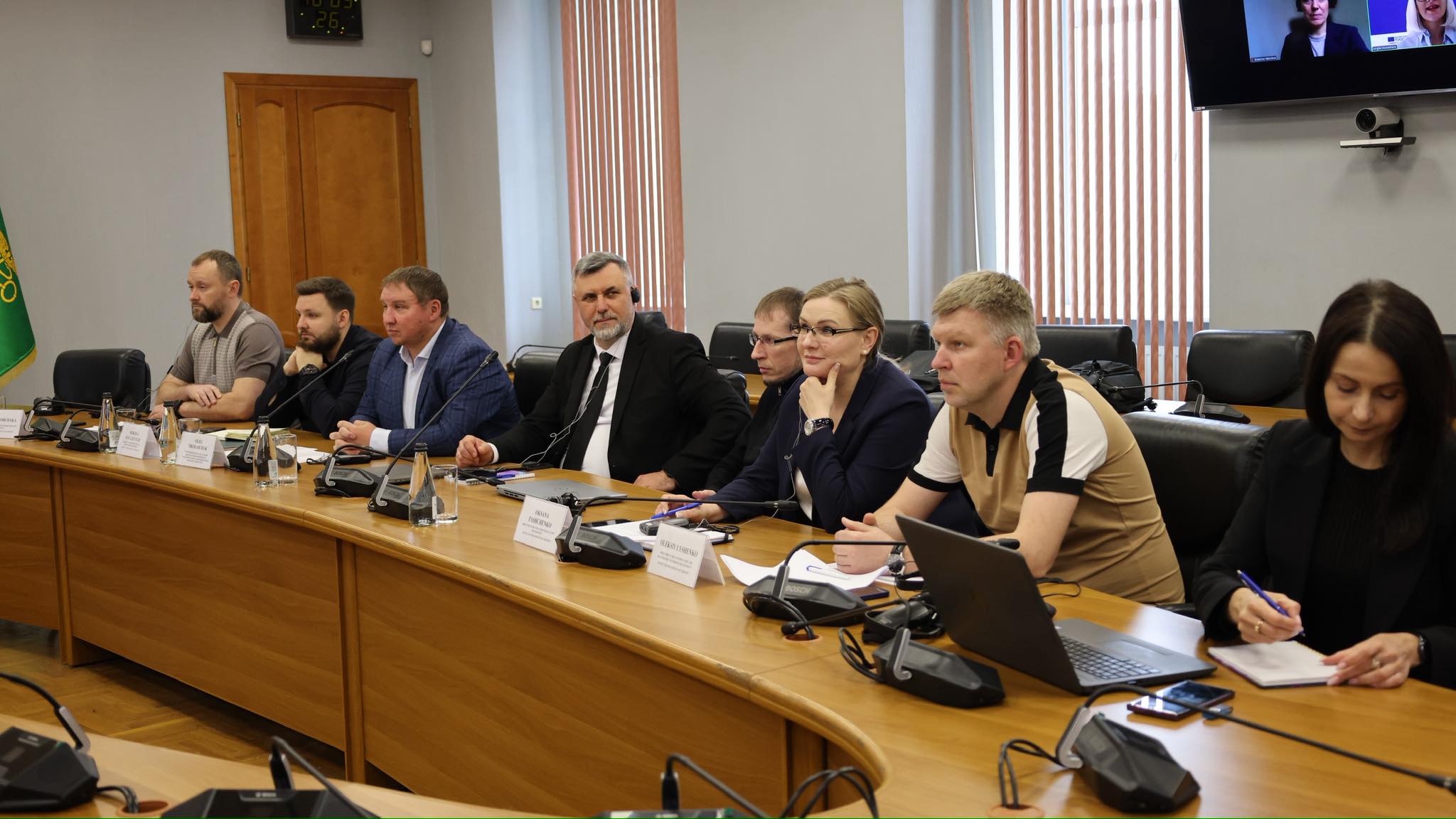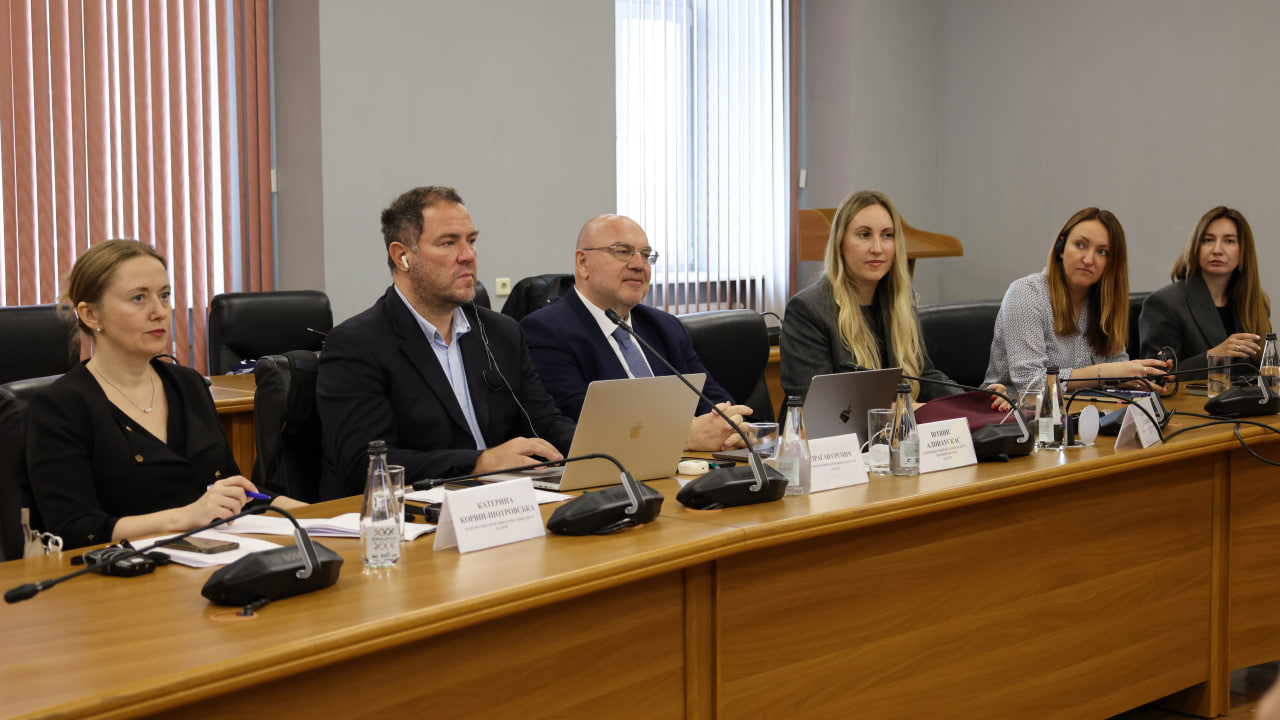Preparing Ukraine’s Customs IT Systems for EU Accession: timeline defined and consultations held on the actions
As part of Ukraine’s preparations for accession to the European Union, consultations were held from 27 to 29 May 2025 between representatives of the Ministry of Finance of Ukraine, the State Customs Service, the EU Delegation, and EU4PFM. The purpose of the meeting was to define steps for the implementation of necessary customs IT systems in Ukraine and their integration with European systems.
The event was attended by the Deputy Minister of Finance of Ukraine for Digital Development, Digital Transformations and Digitalization Oleksandr Hrubiian, Deputy Head of the State Customs Service for Digital Development, Digital Transformations and Digitalization Oleg Nikolaychuk, Director of the Customs Policy Department of the Ministry of Finance Oleksandr Moskalenko, representatives of the EU Delegation, EU4PFM Team Leader Jurgita Domeikiene, international key experts Vytenis Ališauskas and Dragan Jeremic, as well as EU4PFM expert Magdalena Zhechkovska.
The consultations focused on assessing the compliance of Ukrainian systems with EU requirements, defining the scope of tasks, discussing necessary resources and the timeline for implementation, and reflecting these elements in government and institutional planning documents, aligned with Ukraine’s goal of EU accession by 2030.
European partners presented key findings of the comparative analysis of the structure and data formats of Ukrainian customs systems in the context of EU requirements. Experts emphasized that by the time of Ukraine’s EU accession, its systems must be able to transmit all required data to EU customs authorities.
During the discussion of the list of IT programs that Ukraine must have operational by the time of EU accession, Oleg Nikolaychuk reported on the components already developed or under development in line with the State Customs Service’s Digitalisation Plan, based on the MASP-C framework. He stressed the need to update the Digitalisation Plan to meet these requirements:
“Our current task is to focus on and proactively implement the National Revenue Strategy. At the same time, we must ensure IT infrastructure compatible with European systems to be ready for future assessment. This decision confirms our commitment to the path of European integration.”
He also highlighted the ongoing evolution of EU legislation and the potential for changes in EU requirements for customs IT systems, which must be taken into account when modernising Ukraine’s IT infrastructure.
“If our goal is Ukraine’s accession to the EU by 2030, then system compatibility testing with the EU should take place in 2028–2029. This means national deployment must start in 2027. Therefore, the time left for development and rollout is limited, and the workload is significant. We need to clearly define the financial, human, and time resources available to ensure the necessary and timely result,” said Jurgita Domeikiene, EU4PFM Team Lead. The need for realistic planning in this area was underlined.
Regarding further joint efforts to implement the 2030 EU accession preparation plan, the European side proposed support for Ukraine, including financial assistance, particularly for developing IT system by contracting external developers.
Oleksandr Moskalenko stressed the importance of developing a detailed plan with specific deadlines, resource allocations, and responsibilities for software development under the new Customs Code of Ukraine, which is expected to be adopted in early 2027.
At the end of the three-day expert visit, Oleksandr Hrubiian expressed appreciation for the open dialogue and highlighted that Ukraine is prepared to adapt existing and develop new information products in line with European IT systems. He emphasized that this direction reflects a clear and consistent position already embedded in state policy. The next phase will involve joint consultations to define a unified Ukrainian position. He also underlined the importance of continued support from the Programme and the European Delegation, noting that Ukraine values this dialogue and is committed to ongoing cooperation grounded in openness, transparency, and mutual trust.
During the consultations, ways to mitigate risks related to the significant workload were outlined, and the EU readiness to support the implementation of Ukraine’s EU accession preparation plan through the EU4PFM Programme was reaffirmed.





